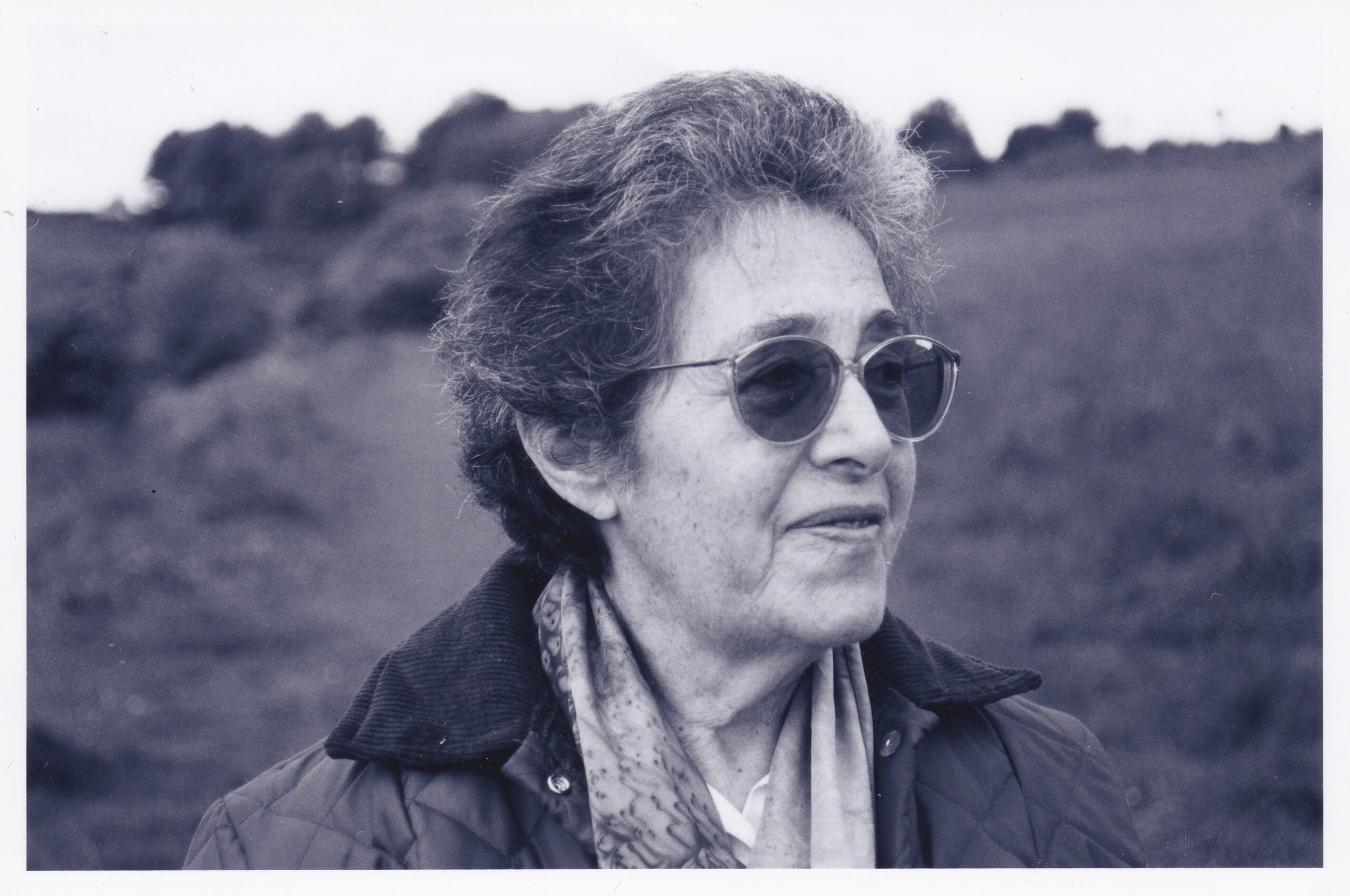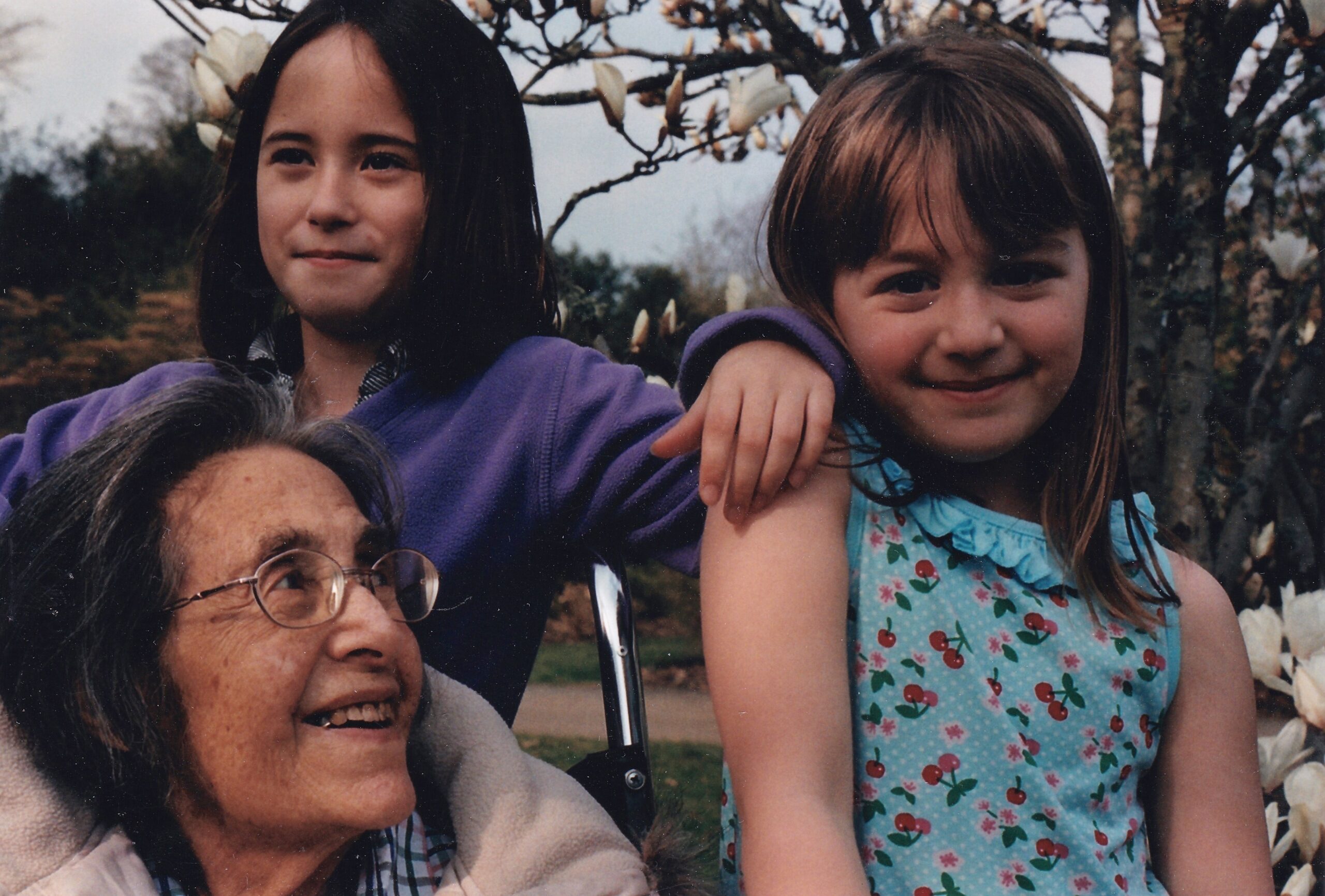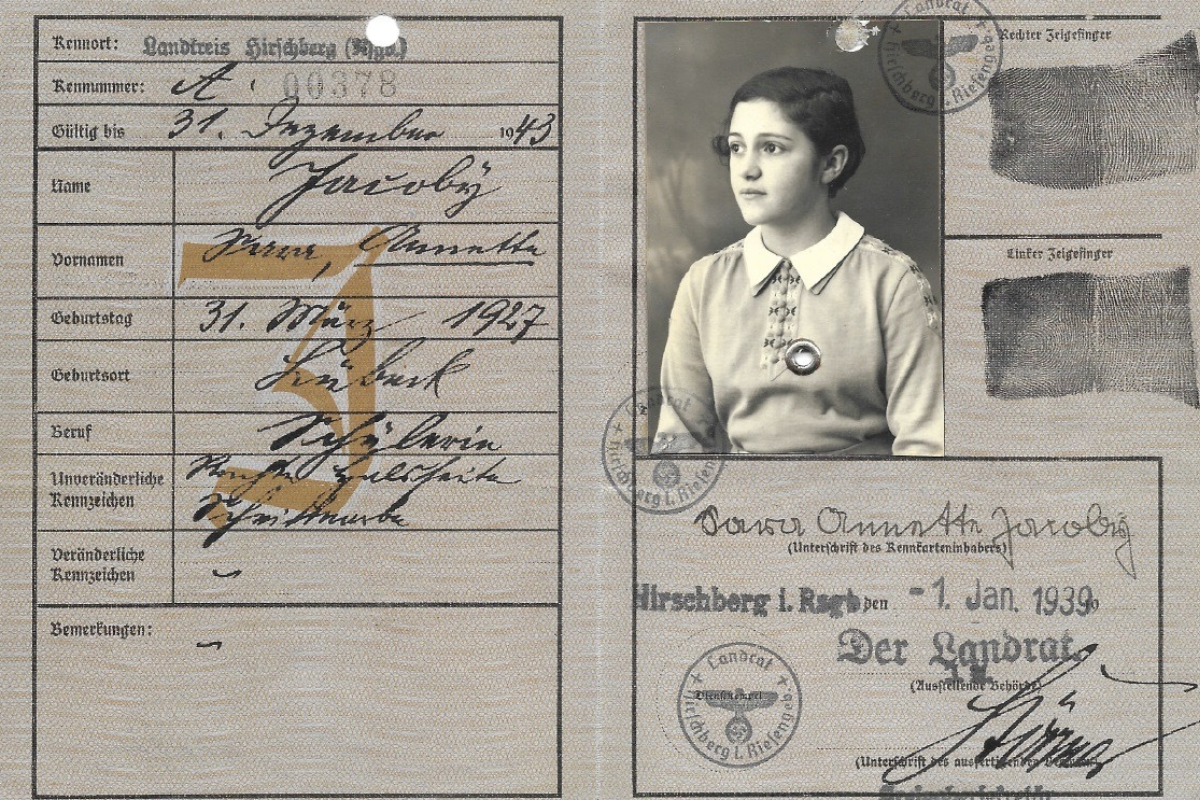When I started university last September, I knew that I wanted to join the Jewish Society, and that I wanted to use it as an opportunity to get in touch with my heritage. I went to the first social, panicked and called my mum asking if I actually ought to be there at all. Everyone was so friendly and welcoming, but I still felt like some kind of fraud. This was the first of a few similar phone calls.
My maternal grandmother – my Oma – was Jewish-German, and over the past few years since her passing, our family has begun a journey of researching and engaging with our Jewish heritage. Both my sister and I were brought up aware of our family’s history and that we were ethnically (on our mother’s side) Jewish, but we were not a family that observed much culturally or at all religiously. We’ve been celebrating Hanukkah since 2021, and each year that passes we adopt more and more Jewish rituals into our lives. It’s a bittersweet experience in some ways: I absolutely love the beauty and light that Jewish holidays bring into our year, and yet at each celebration I think of my Oma, what was taken from her and how I’m learning so much from her and her culture without her being here with us.

Oma was forced to flee from her homeland Germany with her parents in 1939, leaving behind family, friends and the land she had grown up in. They settled in a village called Livingstone, near the Victoria Falls in Northern Rhodesia (now Zambia), a destination chosen by dropping a pencil on an open map of territories that were still accepting refugees. They quickly realized that their lives were going to look very different, and although it was jarring – the Rosenthal china and piano they insisted on bringing to Africa were instantly useless – they had to adapt and accept their new reality.
Back in Germany, life had been becoming increasingly unbearable under Hitler’s rule. Its culmination came when my Oma was hidden in a village orphanage to protect her after her father was arrested during Kristallnacht. Her mother somehow persuaded the authorities to release him, and the family left for Africa shortly after. Even in Africa, away from threat of persecution, it was difficult for them to ever return to feeling completely safe. This experience, and her later journey to England in her 20s where she again had to assimilate into a new culture in order to be accepted, led to the development of my Oma’s mantra: Adapt, always adapt. This mantra represents who Oma was to the core, someone with a fiercely positive outlook on life in spite of the traumatic events she lived through. She felt neither safe nor able to openly celebrate her heritage, and yet she continued to see life as being made up of adventures. She managed to balance day-to-day survival with deeper appreciation for and enjoyment of life. I think of my Oma, and I remember her light, her joy and her optimism. I feel so grateful to have had the privilege of learning from her.
I didn’t know that joining the Jewish Society would be something I would find so intimidating, and I didn’t know that there were so many complicated fears and anxieties involved in being Jewish. I also didn’t know that I would meet so many wonderful people, people that are kind, welcoming and understanding. I only discovered this last part because I followed Oma’s example, and kept going with optimism.
I still have fears that I’m not Jewish enough, that I’m not understanding references to what seem to be universal experiences. I’m still calling my mum, asking her for advice and reassurance. I didn’t grow up with Hanukkah, or Passover, and I’ve never been to a Bar/Bat Mitzvah. But I’m learning to adapt, both at home and at university, where I’m starting to make a second home. There is so much beauty and love within being Jewish, I feel so comforted by the culture my Oma was forced to hide. Every time I learn about a new holiday or practice, I am genuinely excited to adopt it into my life – with the exception of Yom Kippur and some elements of Passover – I really love bread.

I miss my Oma, I do every day, but increasingly I find her in the culture my family is beginning to reclaim. In 2021 our family had our German citizenship restored, 80 years after my grandmother’s was taken away from her. I know that the lessons she taught me, lessons of resilience and perseverance, have helped me get to where I am. I find confidence through her mantras, and feel empowered by the strength I know she had throughout her entire life. There are still moments where I feel like an outsider, on the oblivious end of a joke I’ve never heard before, but I see them as chances to connect even more with my Jewish friends around me. I have lots to learn, and more to experience, and I am so excited for it all. Reclaiming my Jewish identity has connected me to my grandmother, and now, despite her no longer being around, I feel closer to her than ever.



